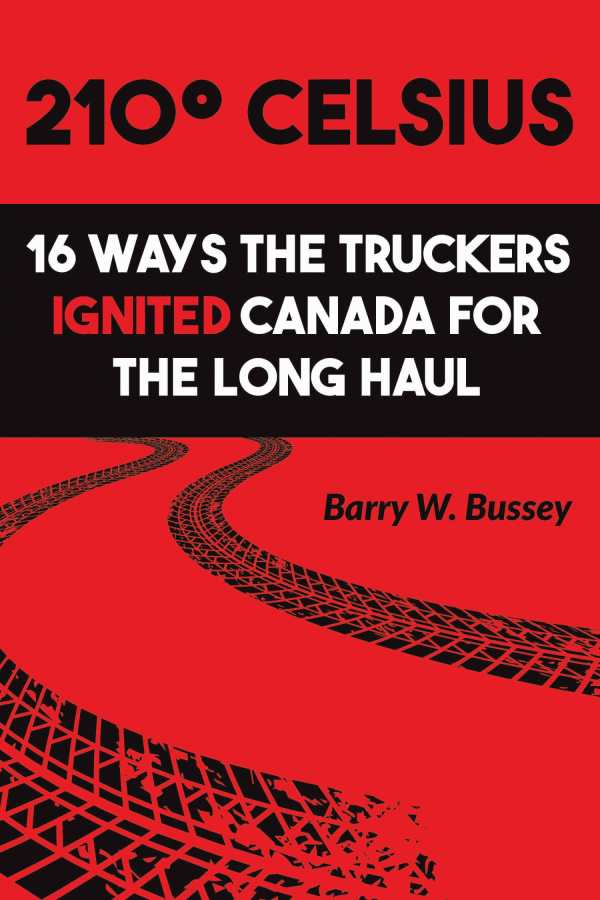210° Celsius
16 Ways the Truckers Ignited Canada for the Long Haul
Indicting Canada’s parliament, banks, health-care system, and media for failing to protect protesters’ rights, 210° Celsius is a passionate contemporary polemic.
Barry W. Bussey’s contemporary political text 210° Celsius covers Canada’s Freedom Convoy and the fallout faced by its participants.
In 2022, thousands of Canadian truckers brought downtown Ottawa to a standstill, erecting blockades along the US border to protest vaccine mandates. The prime minister responded by invoking the Emergencies Act to dispel the blockades by force. The book calls that move authoritarian and argues it set a dangerous precedent, providing the groundswell for a new conservative political paradigm. Indeed, the book treats the protest and the government’s response to it as signs of greater political upheavals to come.
After a brief chronology of the protest’s rise and ultimate dissolution, the book indicts Canada’s parliament, banks, health-care system, “mainstream media,” and other groups for failing to protect the demonstrators’ rights during the protest. Its moral posturing is without nuance, though. For example, in addressing decisions made by the convoy’s political opponents, the book’s tone is too cynical to be compelling: the Trudeau administration, Canadian progressives, and mainstream medical advisors are dubbed “The Cathedral” and are described as “manipulative for some other political purposes.” Indeed, motivations are ascribed to the convoy’s opponents throughout, but without qualification or evidence. Further, the protesters and their sympathizers are addressed in warm and charitable terms, as if prejudice, corruption, and the quest for power are exclusive to “The Cathedral”; negative examples of the participants’ behavior are dismissed as isolated and unrepresentative incidents, while the book presents isolated depictions of well-intentioned truckers as representative of the entire movement. These polarized characterizations are consistent throughout, inhibiting the book’s ability to present a full and measured look at the convoy.
Indeed, the book makes a record of the Freedom Convoy not with an analyst’s objectivity, but with an insider’s noblesse oblige. Its prose is passionate and unconvincing beyond the bounds of the convoy’s own political in-group. The book is better grounded when it sticks to the documentary record, as with its account of the convoluted arrests and trials of convoy organizer Tamara Lich. Elsewhere, its committee-by-committee narrative of Trudeau’s testimony in the convoy’s aftermath represents gripping and humane investigative work.
In the end, though, far too many chapters revolve around vague, repetitive appeals to the general “heavy-handedness” of the Canadian government’s response, or to the general affability of the protesters. The book’s discussions of issues relating to COVID-19 itself—including the science involved in mRNA vaccines and their efficacy, the accuracy of COVID death totals, and the methods by which vaccine-related injuries are reported—are undersupported and dependent on worn, well-refuted talking points. The result an unreliable and inconsistent account of an event whose ultimate significance is still unclear.
A fervent account of a 2022 Canadian protest movement, 210° Celsius seeks to counterweight government overreach and issue a call to conscientious citizenship in the modern age.
Reviewed by
Isaac Randel
Disclosure: This article is not an endorsement, but a review. The publisher of this book provided free copies of the book and paid a small fee to have their book reviewed by a professional reviewer. Foreword Reviews and Clarion Reviews make no guarantee that the publisher will receive a positive review. Foreword Magazine, Inc. is disclosing this in accordance with the Federal Trade Commission’s 16 CFR, Part 255.

